'Doctors told me I'd die before I left school'
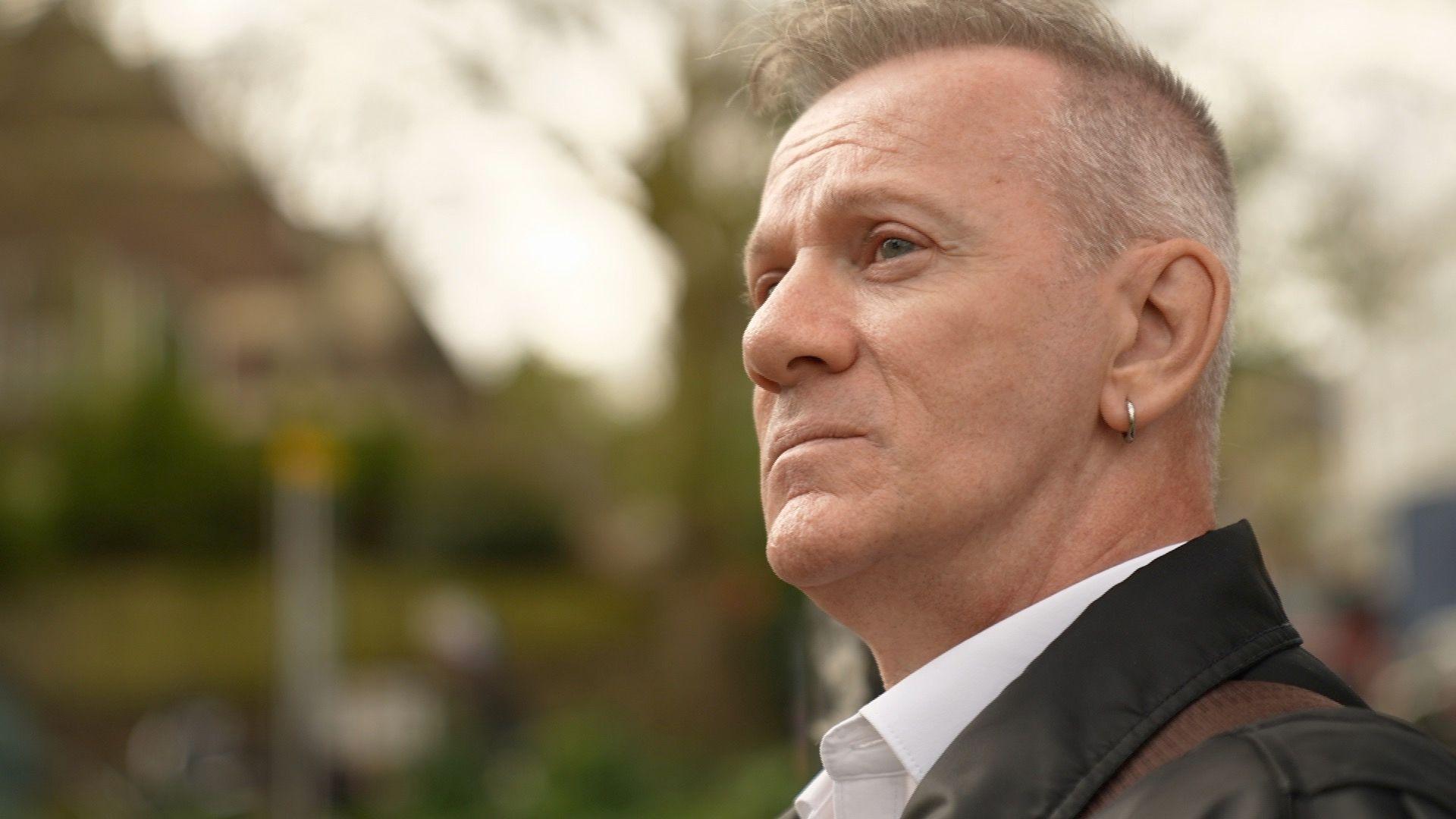
Mark Ward is now 54 and says his life has been "destroyed" following what became know as the infected blood scandal
- Published
"If you're lucky, you have about two years. But you probably won't live long enough to leave school."
Those were the words Mark Ward says he will never forget hearing from a doctor at London's Royal Free Hospital in 1984 when he was told he had contracted HIV from contaminated blood products, used to treat his haemophilia.
Another former patient, Nicola Jones was left with Hep C after being given Factor VIII to stop blood clotting when she was nine - despite her declining health she was told by doctors it was "all in her head".
The Royal Free said it acknowledged the "huge impact" receiving infected blood products had on victims in the 1970s and 1980s and had offered medical and psychological support.
The Infected Blood Inquiry into what MPs called "the biggest treatment disaster in NHS history" is due to conclude in May.
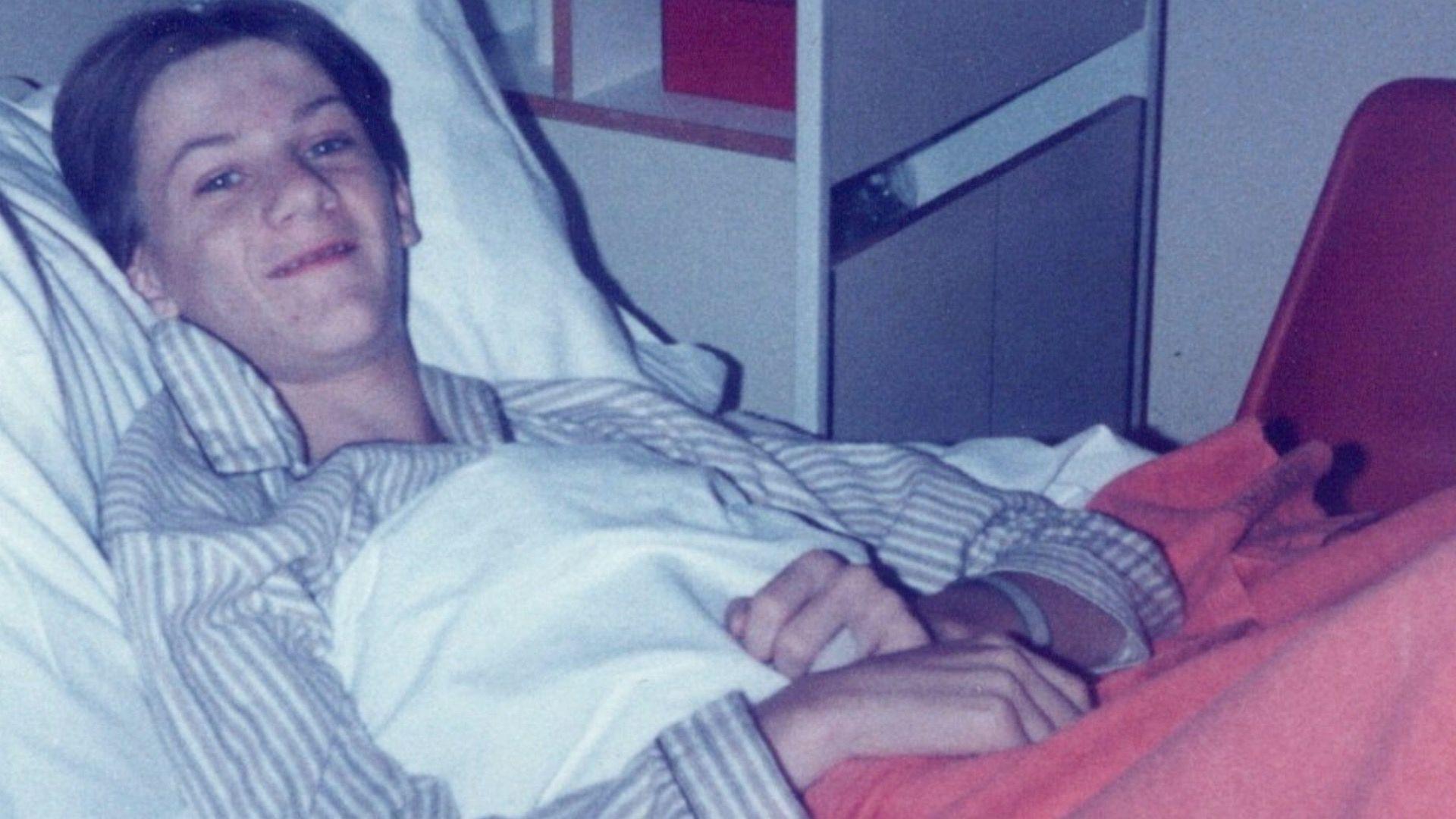
Mr Ward, pictured at the Royal Free Hospital in 1984, was told he had contracted HIV after receiving contaminated blood products
From the 1970s until 1991, up to 30,000 people in the UK were given treatments infected with HIV and hepatitis C in what became known as the infected blood scandal.
It was made from pooled plasma that included donations from high-risk groups including prisoners and drug users in the US.
Infected blood victims step up compensation fight
- Published28 February 2024
Blood victim who took his life 'mistrusted system'
- Published22 April 2024
Two main groups of NHS patients were caught up in the scandal.
Firstly, haemophiliacs - and those with similar disorders - who have a rare genetic condition that means their blood does not clot properly.
A second group of patients were given a contaminated blood transfusion after childbirth, surgery or other medical treatment between 1970 and 1991.
The inquiry estimates between 80 and 100 people were infected with HIV and about 27,000 with Hepatitis C.
In total, it is thought about 2,900 people have died as a result of the scandal.
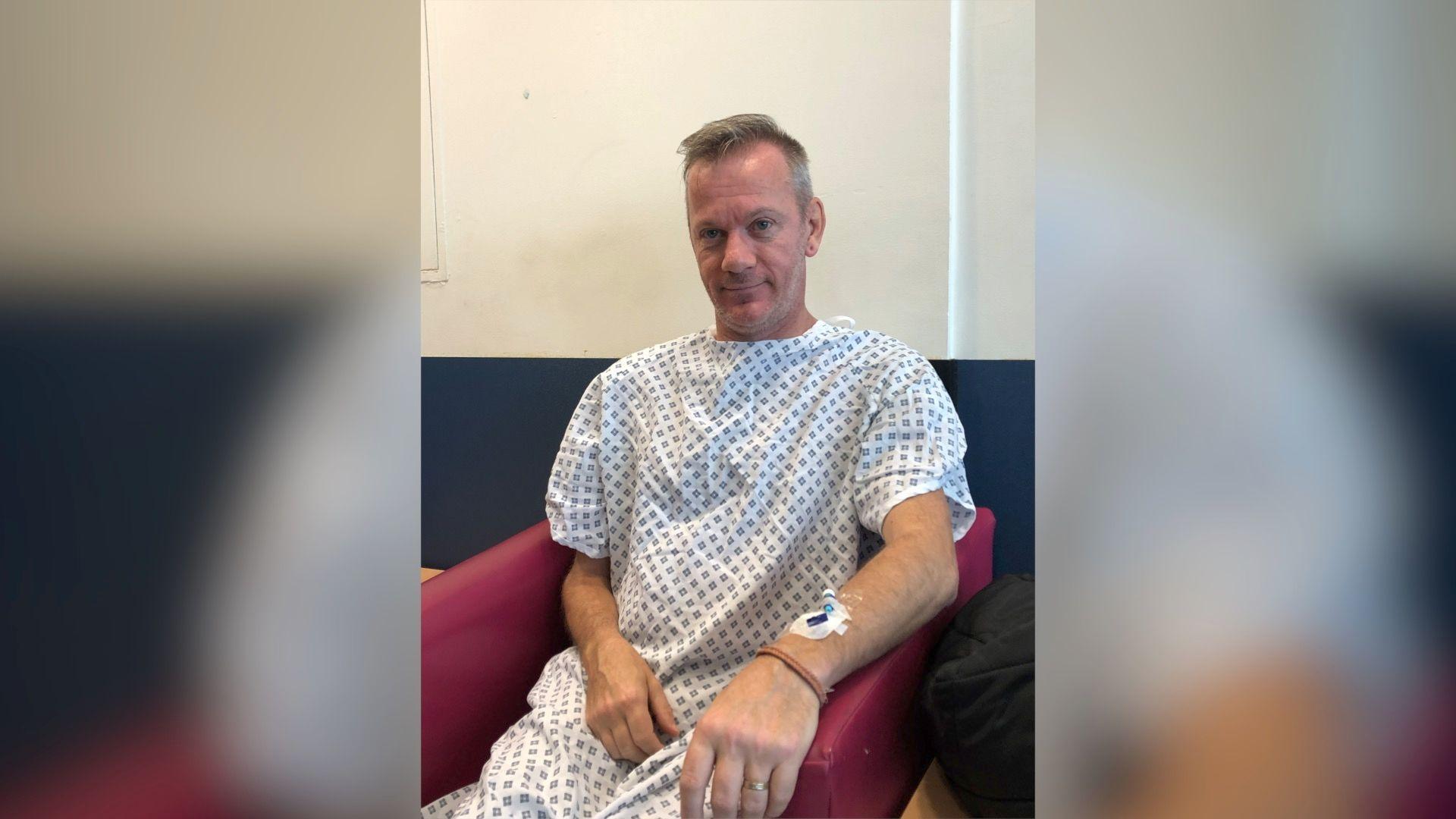
Mr Ward says the effects of what happened have continued to this day and he continues with regular treatment
Mr Ward was one of a smaller number of victims who contracted both HIV and Hepatitis C.
He was just 14 at the time.
Speaking ahead of the publication of the final inquiry, for which he has provided evidence, he told the BBC: "So at 14, when you get told that, what do you do?
"You carry on with your education but your whole life just gets tipped upside down.
"Because I was told that's it, you're going to die of Aids which was then being splattered all over the television."
He was in and out of hospitals as a teen and left school at 16 with no qualifications, though he was eventually able to secure work as a groundsman for British Airways.
Now 54, Mr Ward said the infected blood scandal "destroyed" his life.
He said he grew up with what he describes as a "death sentence" hanging over him, dependent on HIV drugs, in an era where there was a lot of stigmatism attached to the disease, and with no idea how long he would live.
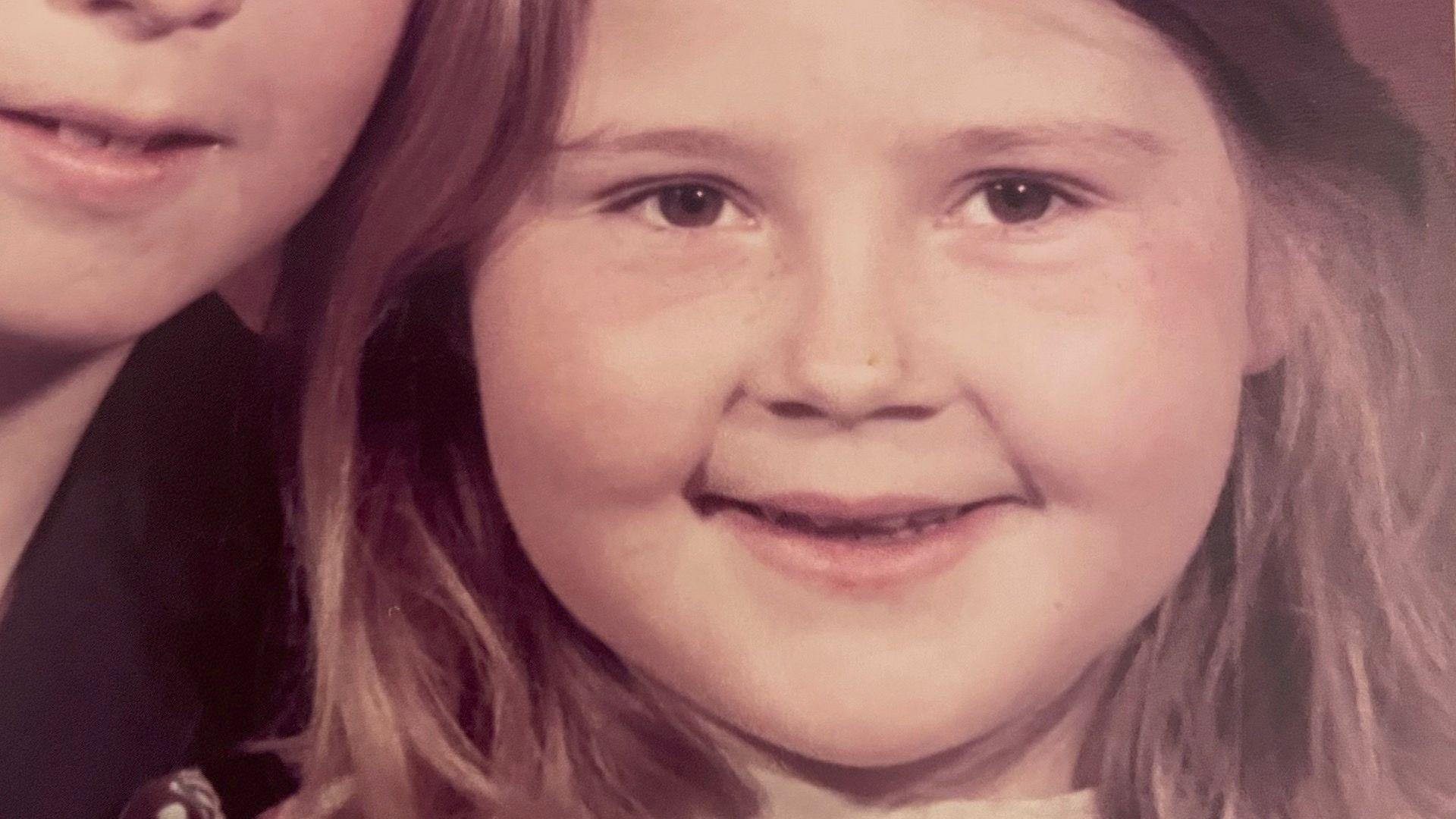
Ms Jones was nine years old when she was affected and became very unwell
Another person infected with Hepatitis C - was haemophilia carrier Nicola Jones who received contaminated blood products, aged nine, at the Royal Free.
She was originally put on the safer cryoprecipitate, to help the blood clotting, and was injected by doctors and nurses.
Ms Jones's medical records confirm she was given the Factor VIII treatment in 1980 during a tonsillectomy and she said doctors at the time dismissed her parents' concerns about her declining health and says her parents were never told.
"Everything deteriorated.
"I went to being a normal, average child that enjoyed playing with their friends to a child that just had to take to their bed with poor health.
"I was very poorly and my parents asking the doctors 'What have you done to our child?
"And the doctors said there was nothing wrong with me and it must be all in my head."
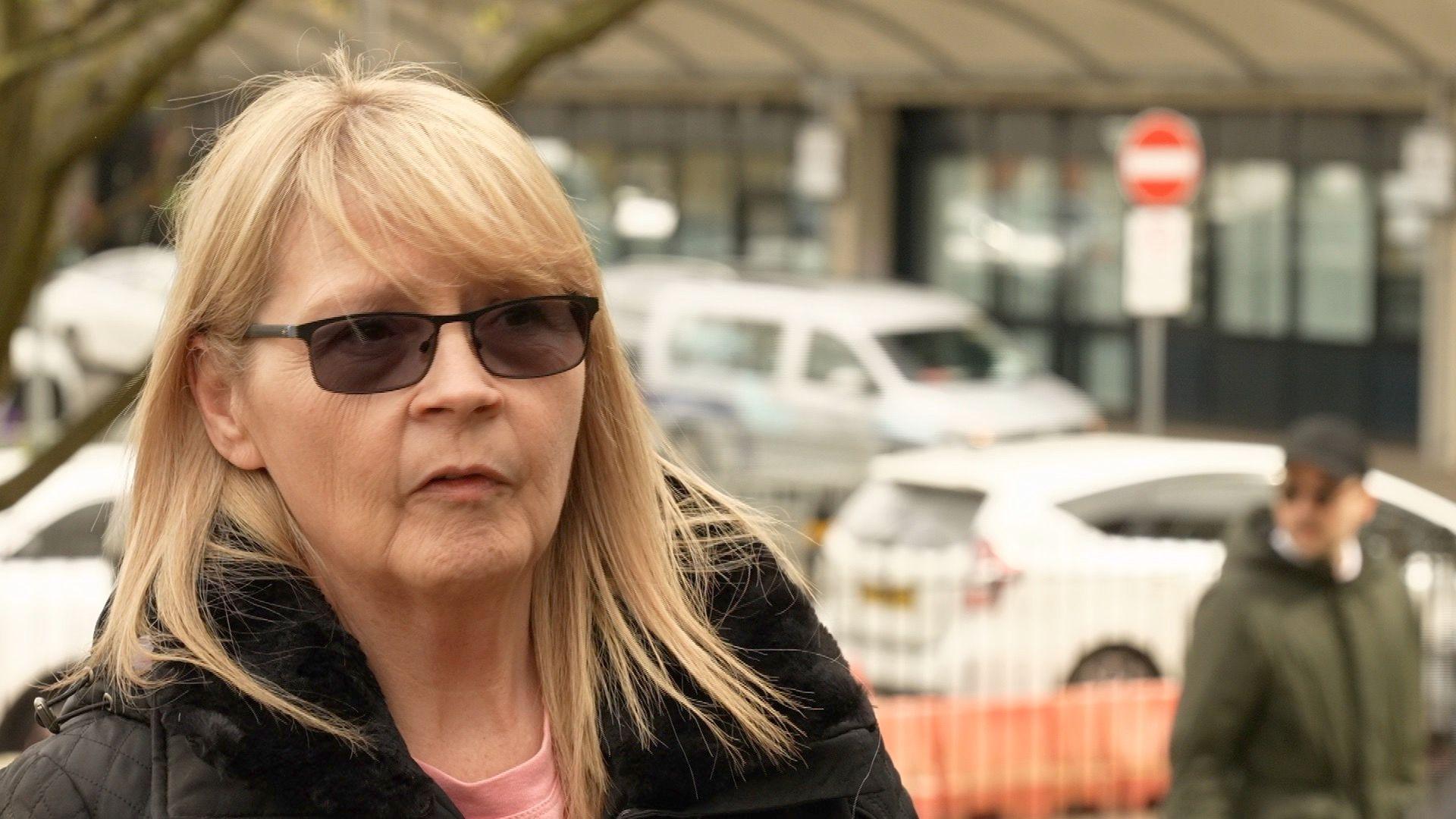
Former health worker Nicola Jones also contracted Hepatitis C from infected blood products
"I had taken to my bed, I had no energy, I was really unwell," said the mother-of-two and former health worker, who along with Mr Ward, gave evidence to the inquiry.
"I'm angry, upset," she said.
"I think it's the whole thing you're being treated as if it's all in your head. It's had a massive impact on me psychologically, phyiscally. To find out in 1995 that I had hepatitis C."
She added that the condition "has had impact on my whole life".
"I was stood down for a while at work in the ambulance service.
"Having hepatitis C is horrendous, you're constantly drained mentally and physically, every day is a challenge.
"I feel let down by the medical professionals that we've been treated this way."
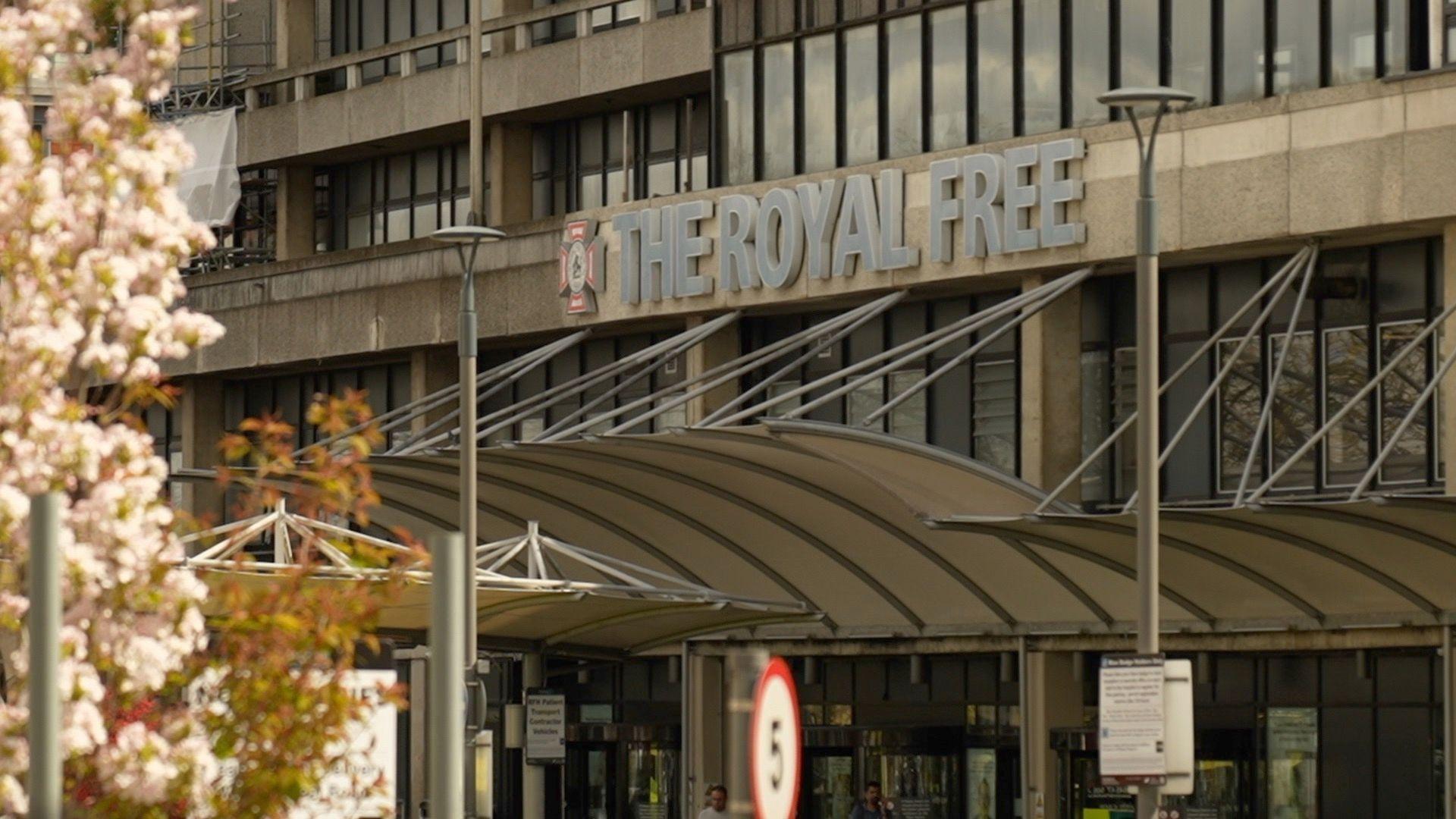
The Royal Free Hospital in north London acknowledged the "huge impact" receiving infected blood products had on victims
The Royal Free led one of 10 "supraregions" of 166 centres in the UK, external that delivered contaminated products to victims.
A hospital spokesperson said: "We recognise that receiving infected blood products in the 1970s and 80s had a huge impact on the lives of patients and their families and the trust has offered medical and psychological support to them, which has continued to this day.
"Throughout this process we have fully engaged with the important work of the Infected Blood Inquiry. We await the publication of the final report, which is expected in May."
Those affected by the infected blood scandal have received annual financial support from the government, but a final compensation deal has not been agreed, with many victims awaiting the publication of the final inquiry, external, due on 20 May.
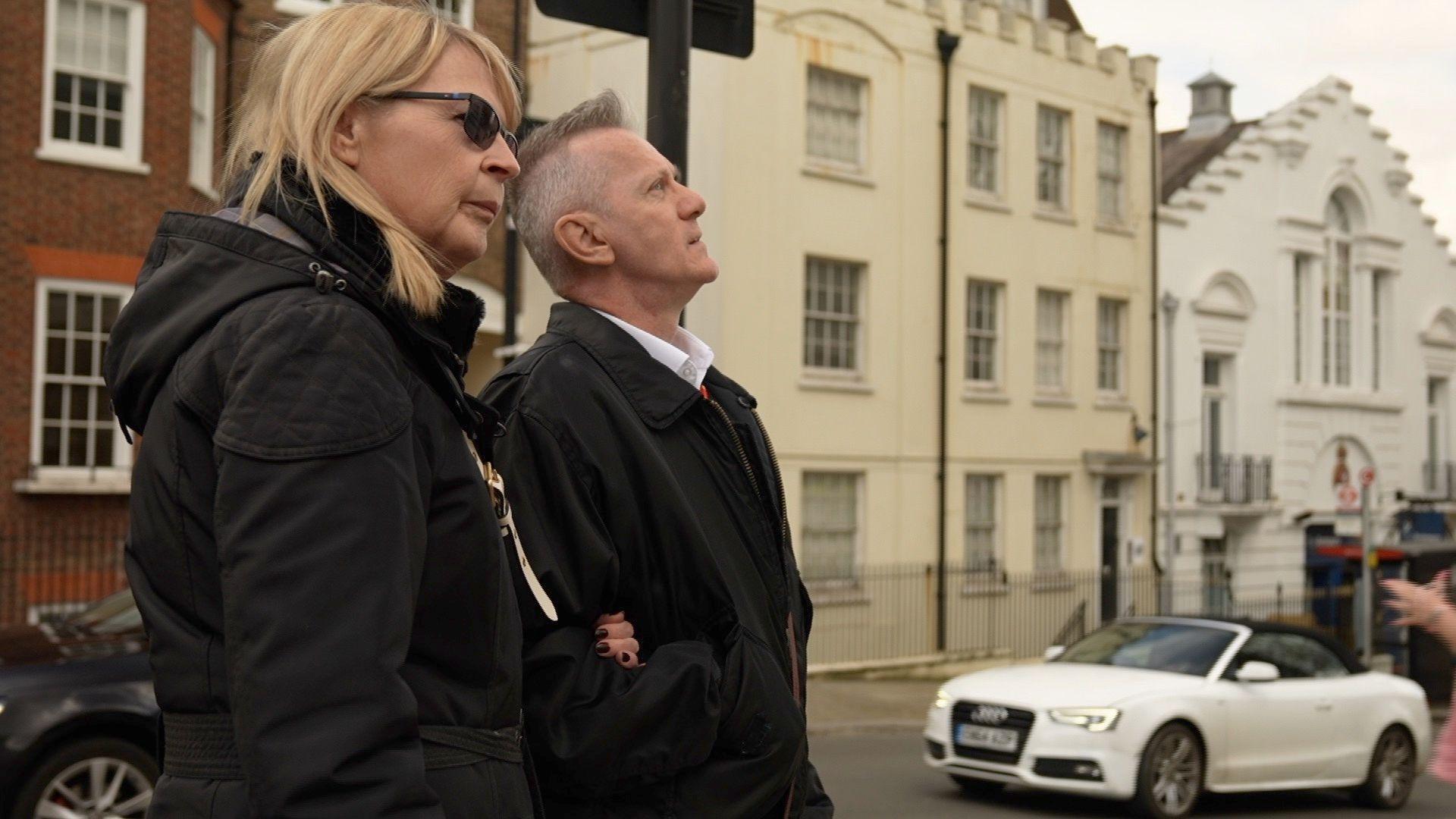
Ms Jones and Mr Ward give each other support, having both been affected by the infected blood scandal
'We lived a double life to hide my little boy's HIV'
- Published22 April 2024
Children used as 'guinea pigs' in clinical trials
- Published18 April 2024
ITV to make drama about contaminated blood scandal
- Published22 February 2024
"I'm thankfully still alive, but all those little boys and my friends are dead, still dying at the rate of two a week, " says Mr Ward.
"Every couple of days I lose a friend and it's getting closer to me. Trying to get justice is the one thing that keeps me going."
Get in touch: If you have a story you would like BBC London's investigations team to look into, please get in touch, in confidence on: londoninvestigationsteam@bbc.co.uk